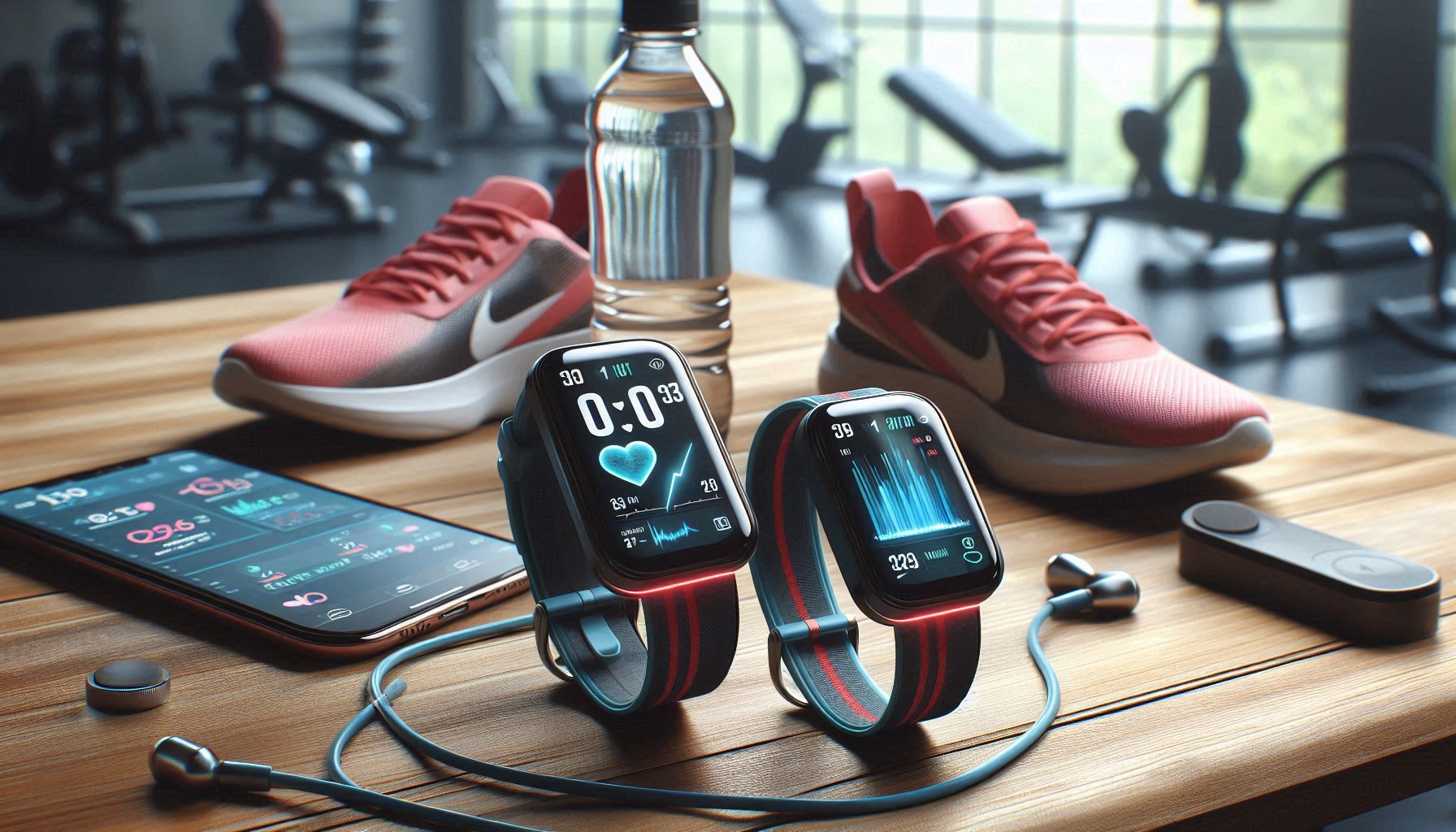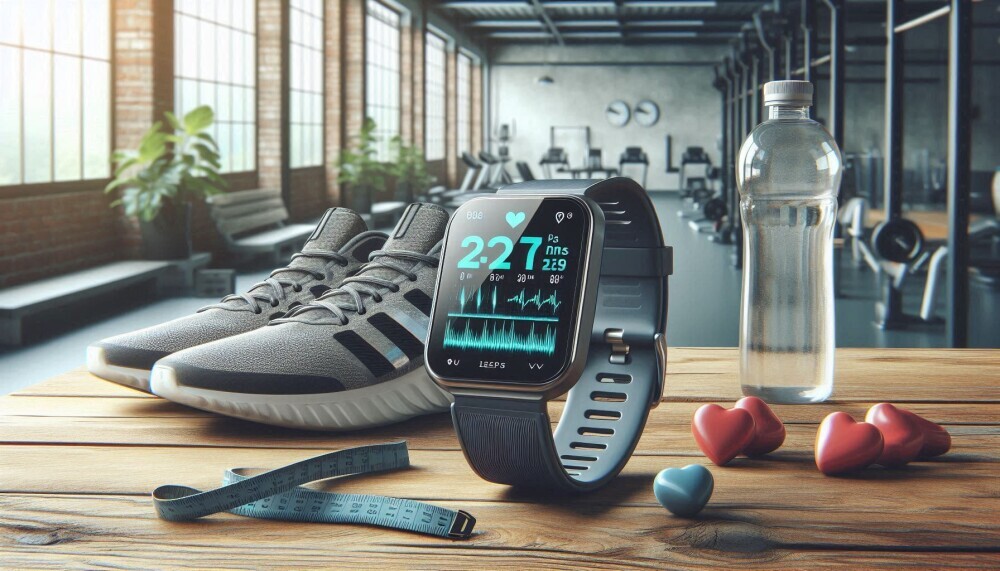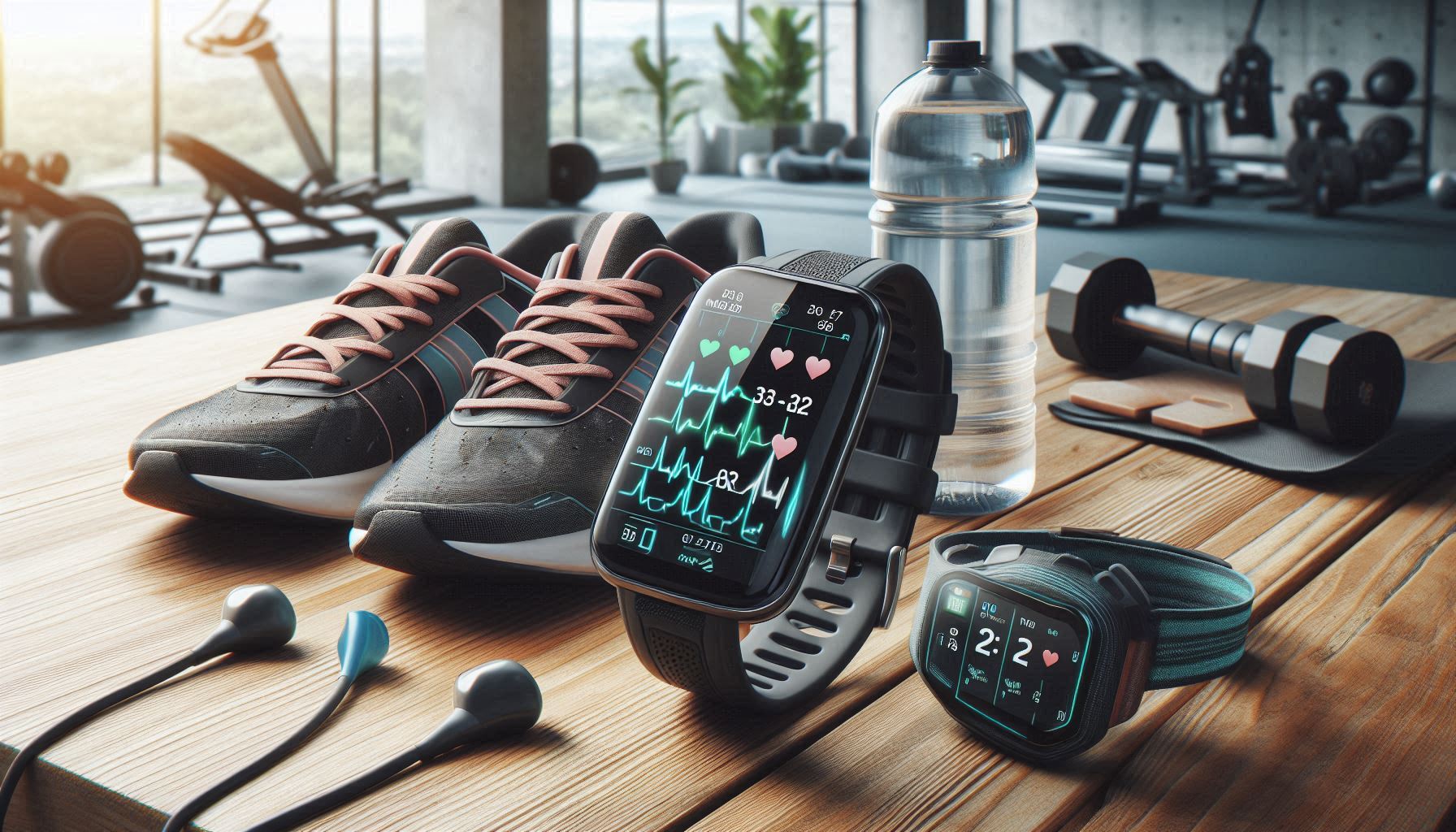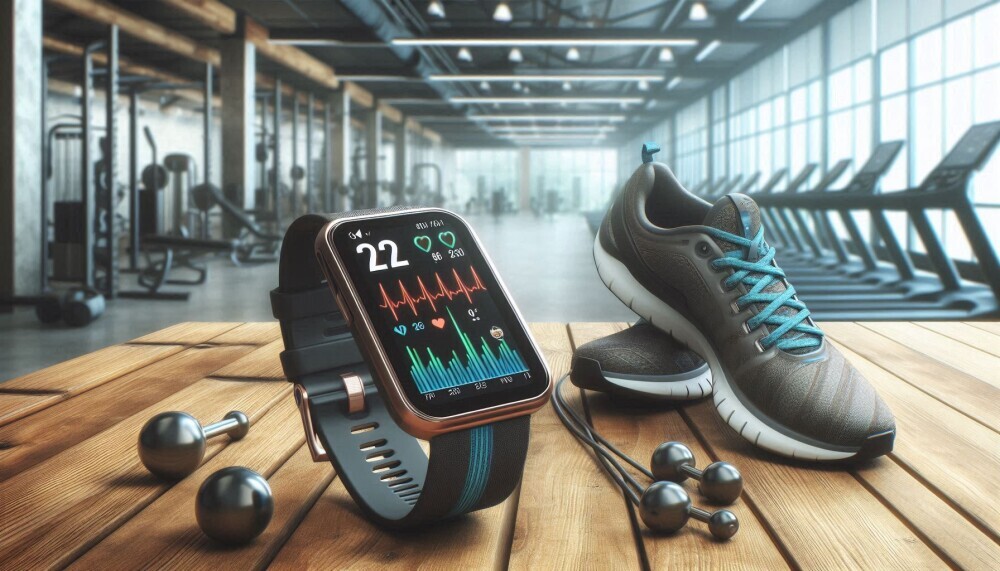With millions of people now using wearable health tech devices, heart health is at the top of the list. People who engage in sports activities are especially keen to monitor their heart health. In this article, we shall be exploring The Best 5 ECG Monitors For Running.
Introduction
Cardiovascular fitness plays a major role in the performance and well being of runners at all levels. Whether you are a weekend jogger, a half marathon enthusiast, or a seasoned trail runner, knowing how your heart behaves during exercise can help optimize your workouts and improve safety.
ECG monitors provide deeper insights into your heart’s electrical activity in real time, allowing runn ers to detect irregularities, manage exertion, and track trends over time. Unlike standard heart rate monitors, ECG devices offer clinical grade readings and allow you to be more proactive about heart health.
With wearable health technology becoming increasingly sophisticated, runners now have access to compact and user friendly ECG monitors that can be worn on the chest, wrist, or even finger. These devices provide important metrics beyond just beats per minute.
From detecting arrhythmias to monitoring heart rate variability, the right ECG monitor can become an essential part of your fitness gear. In this guide, we explore five of the best ECG monitors for runners based on accuracy, comfort, features, battery life, compatibility, and overall value.
The Best 5 ECG Monitors For Running
1. Polar H10 Heart Rate Sensor
Price: Around £80 to £90
Overview:
The Polar H10 is a chest strap ECG sensor that delivers highly accurate heart rate measurements. It’s trusted by professional athletes, personal trainers, and medical researchers for its precision and reliability. With both Bluetooth and ANT+ connectivity, it integrates seamlessly with running watches, smartphones, and fitness apps.
Key Features:
- Medical grade ECG accuracy
- Waterproof and suitable for all weather running
- Memory storage for one training session without a connected device
- Compatible with Polar Beat and many third party apps like Strava and Nike Run Club
Pros:
- Superior accuracy compared to wrist based monitors
- Comfortable and adjustable strap
- Works with a wide range of devices
- Long battery life up to 400 hours
Cons:
- Needs to be worn on the chest which some users find less convenient
- No screen or display of its own
2. Apple Watch Series 9
Price: From £399
Overview:
The Apple Watch Series 9 offers a powerful ECG feature that records heart rhythms directly from your wrist. While it is primarily a smartwatch, its ECG functionality is FDA cleared and particularly useful for runners who want an all in one device that tracks activity, pace, and heart health.
Key Features:
- Built in ECG app with on demand readings
- Advanced activity tracking including running metrics
- Fall detection and emergency SOS
- Integration with Apple Health for easy data review
Pros:
- Stylish and functional beyond just ECG monitoring
- Includes fitness tracking, smart notifications, and GPS
- Accurate heart rate and rhythm tracking
- Wide app ecosystem
Cons:
- Expensive compared to standalone ECG devices
- Battery life only lasts about 18 hours, requiring daily charging
3. Garmin HRM Pro Plus
Price: Around £120
Overview:
Garmin’s HRM Pro Plus is another chest strap monitor designed for high intensity runners and athletes. While it doesn’t record a full ECG waveform like a medical device, it provides data that correlates with ECG quality heart rate tracking and captures advanced running dynamics.
Key Features:
- Accurate heart rate monitoring during all types of training
- Running metrics like cadence, stride length, and vertical oscillation
- Compatible with Garmin watches and many third party apps
- Stores data for later syncing if device not connected during run
Pros:
- Ideal for runners interested in improving form and performance
- Water resistant and durable
- Battery lasts up to a year with regular use
Cons:
- No built in display or smartphone interface
- Focused more on athletes than casual users
4. Withings ScanWatch
Price: From £279
Overview:
The Withings ScanWatch combines classic analogue design with advanced health tech, including built in ECG monitoring. It is ideal for runners who want a low profile wearable that can measure heart rhythms on demand while doubling as a stylish timepiece.
Key Features:
- On demand ECG recording via watch interface
- Heart rate monitoring throughout the day
- SpO2 and sleep tracking capabilities
- Battery life up to 30 days
Pros:
- Elegant design suitable for everyday wear
- High battery endurance for long training cycles
- Medical grade ECG sensor
- Syncs with Health Mate app and Apple Health
Cons:
- No GPS, so requires pairing with phone for run tracking
- Fewer fitness features compared to full running watches
5. KardiaMobile 6L
Price: Around £149
Overview:
Though not worn continuously, the KardiaMobile 6L offers six lead ECG readings for serious heart monitoring. It’s perfect for runners who have a history of arrhythmias or want to monitor heart activity before and after workouts. This portable device fits in your pocket and connects to your phone to provide medical grade results.
Key Features:
- Six lead ECG measurement from a compact device
- Results in just 30 seconds
- Detects atrial fibrillation, bradycardia, tachycardia
- Shareable reports with doctors
Pros:
- High accuracy and advanced cardiac data
- Small and easy to carry
- Excellent tool for heart conscious runners
Cons:
- Not worn during running, best for pre or post run checks
- Requires a smartphone for operation
Comparison Summary
For runners looking for the most precise real time heart data during workouts, the Polar H10 and Garmin HRM Pro Plus are the top picks. They both use chest strap sensors, which are known for their high accuracy, and they sync easily with popular fitness watches and apps. The Polar H10 offers a slightly more research grade ECG reading, while the Garmin model adds valuable running dynamics that help you fine tune your form.
For those who want more than just ECG monitoring, the Apple Watch Series 9 is a great choice due to its full suite of health and fitness features, even though it comes at a higher price and shorter battery life. The Withings ScanWatch provides an excellent balance between health monitoring and daily wear aesthetics, especially for users who do not want to wear an obviously sporty device.
Finally, the KardiaMobile 6L is a solid option for runners with specific cardiac concerns, providing advanced ECG measurements that can be shared with healthcare providers, though it is not designed for use during active exercise.
Frequently Asked Questions
1. What is an ECG monitor and how is it different from a regular heart rate monitor?
An ECG monitor tracks the electrical activity of the heart to provide detailed data about heart rhythm and function. Unlike standard heart rate monitors that only count beats per minute, ECG monitors can detect irregular heart rhythms, such as arrhythmias, and provide more medically accurate insights into heart health.
2. Do runners really need an ECG monitor, or is a heart rate monitor enough?
For casual runners, a regular heart rate monitor may be sufficient. However, runners with a history of heart conditions, those training intensely, or individuals over 40 who want to track heart health more precisely may benefit from the added data and safety offered by an ECG monitor.
3. Are chest strap ECG monitors more accurate than wrist based ones?
Yes, chest strap ECG monitors are generally considered more accurate because they sit closer to the heart and provide real time data from the chest area. Wrist based devices can still offer ECG functionality but may not be as reliable during vigorous movement.
4. Can ECG monitors be used during high intensity running or interval training?
Most high quality ECG monitors like the Polar H10 or Garmin HRM Pro Plus are specifically designed for intense training conditions. They remain accurate even during high heart rates, making them ideal for interval sessions or long distance runs.
5. Is the data from wearable ECG monitors medically reliable?
While many wearable ECG monitors provide clinical grade data and are FDA cleared or CE certified, they are not a replacement for full medical diagnostics. They are best used as early detection tools or for ongoing monitoring. Always consult with a healthcare provider for serious concerns.
6. Do ECG monitors require a subscription or app to use?
Some ECG monitors, like the KardiaMobile 6L, offer additional features with a paid app subscription, but basic functionality is often available for free. Devices like the Polar H10 and Garmin HRM Pro Plus work without any subscription, though pairing with fitness apps enhances their capabilities.
Why Runners Should Consider Using an ECG Monitor
Running puts a natural and beneficial strain on the heart, but for some individuals, it can also reveal or exacerbate underlying heart conditions. ECG monitors give runners the ability to go beyond standard heart rate tracking by analysing the actual electrical patterns of the heart. This is particularly useful for identifying irregularities such as atrial fibrillation or skipped beats which might not be noticeable through normal training feedback.
Using an ECG monitor can also help runners tailor their workouts to their cardiovascular fitness level. For example, monitoring heart rate variability over time can provide insights into recovery, fatigue, and stress. For older runners or those returning from injury, ECG tracking can be a useful safeguard to ensure they are training within safe limits. Overall, these devices promote not just performance improvement but also longevity and health conscious training practices.
How to Choose the Right ECG Monitor for Running
When selecting an ECG monitor for running, there are several factors to keep in mind. First and foremost is accuracy. Chest strap monitors generally offer the most precise heart data during exercise. However, many runners prefer the comfort and style of wrist based monitors or smartwatches.
Battery life is another key consideration, especially for those who participate in long distance running or prefer not to recharge devices daily. Chest straps like the Polar H10 and Garmin HRM Pro Plus can go weeks or even months on a single battery, while devices like the Apple Watch require more frequent charging.
Compatibility with your current devices and apps is also essential. Ensure that the ECG monitor syncs with your smartphone, fitness tracker, or the specific apps you rely on for training insights. Finally, consider your primary use case. If you’re using ECG for general fitness monitoring, a smartwatch may suffice. If you’re monitoring for medical reasons or need detailed reports, a dedicated medical grade device like the KardiaMobile 6L could be more appropriate.
Conclusion
As wearable health tech continues to evolve, runners now have access to ECG monitors that were once only found in clinical environments. These devices are helping athletes take charge of their cardiovascular fitness with tools that are accurate, accessible, and easy to use. Whether you are training for a marathon, getting back into shape, or just looking to stay healthy while running, an ECG monitor can provide insights that elevate your performance and help you stay safe.
Choosing the right ECG monitor ultimately depends on your specific needs and lifestyle. From all in one smartwatches to high performance chest straps and portable six lead ECG devices, there’s a solution for every type of runner. With the right device, you can train smarter, monitor your heart with confidence, and run with peace of mind.
Our Thanks!
Our thanks to you for taking the time to read our article on The Best 5 ECG Monitors For Running. Hopefully, it has helped you with your search for a suitable ECG monitor. There are lots of really helpful and informative articles in our blog on a range of different wearable health tech device subjects. You should read our related article which is titled 5 Best ECG Monitors For Home Use.
Please let us know in the comments section below which brand of home use ECG monitor you are currently using or plan to buy in the future!
**Here is a bit of transparency. Our website www.vertevia.com does contain affiliate links and Amazon links. So, if you did make a purchase through the website, we may receive a small commission. This is at no extra cost to you whatsoever. It’s just a way for you to support us as we continue to bring you top quality content**
All the best!
Eamon







